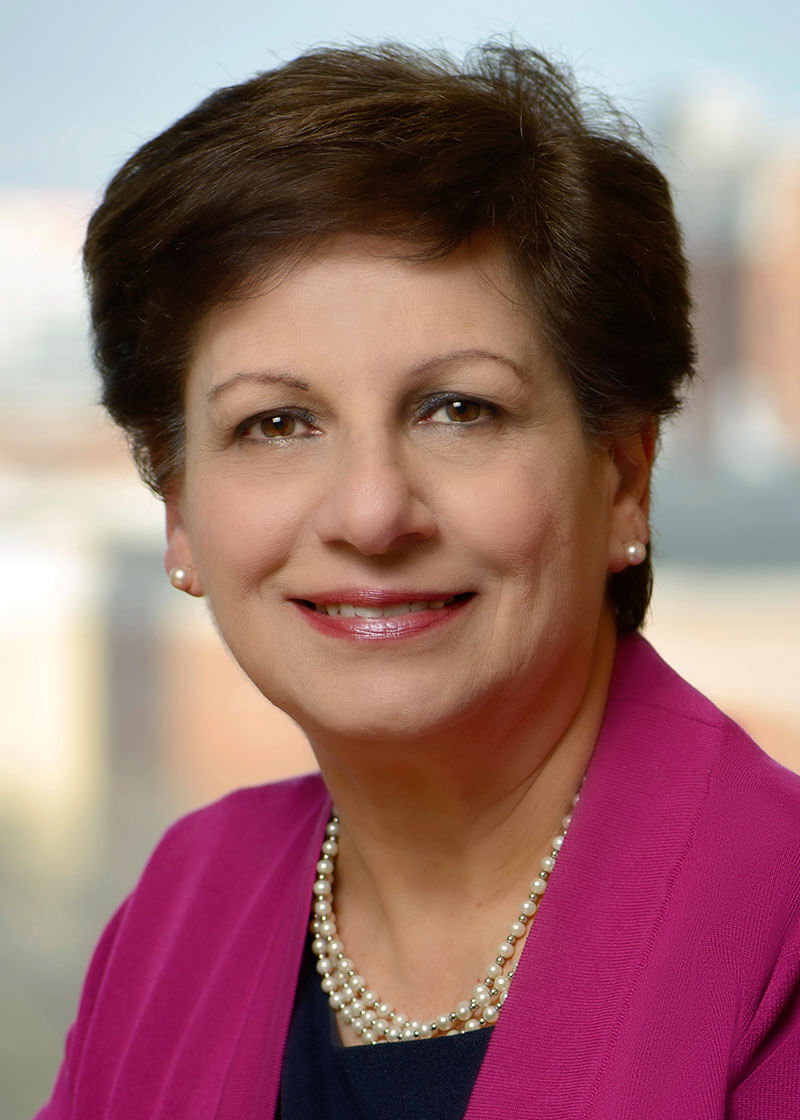Mona Fouad
Senior Associate Dean for Diversity and Inclusion; Professor and Director, Division of Preventive Medicine; Founding Director, Minority Health & Health Equity Research Center; Heersink School of Medicine
(205) 934-4707
Mona Fouad, MD, MPH, is Senior Associate Dean for Diversity and Inclusion in the UAB Heersink School of Medicine and Professor and Director of the UAB Division of Preventive Medicine. She is also the Founding Director of the UAB Minority Health & Health Equity Research Center (MHERC). Fouad is recognized nationally as a leader in health disparities research and in 2017 was elected to the National Academy of Medicine. This is one of the highest honors given to a physician or scientist in the United States. She has served as a member of the National Institutes of Health (NIH) National Advisory Council on Minority Health and Health Disparities.
One of her major accomplishments is the creation of UAB MHERC, the enabling platform for health disparities research, training, and outreach at UAB and the mid-South region.Through her efforts, the MHERC has been continually funded by the NIH/NIMHD as a Center of Excellence since 2003. She has been the PI on numerous federally funded projects, including the Mid-South Transdisciplinary Collaborative Center for Health Disparities Research to reduce the disparities in chronic disease burden experienced by African Americans in six mid-south states. She recently received U54 funding from the NIH/NIMHD to establish the UAB Obesity Health Disparities Research Center. Fouad has contributed to the science of health disparities, leading major studies to identify variability in cancer care and outcomes based on race, gender, and age. She is the driving force behind interdisciplinary research efforts for understanding problems related to cancer screening and cancer risk factors in the Deep South. Her work in translating science into practice has improved health outcomes in minority and other vulnerable populations. She developed nationally emulated models for recruitment and retention of minorities in clinical trials, and innovative community-based approaches for reducing racial disparities in breast and cervical cancer. As a direct result of her projects, racial disparities in breast cancer screening in Alabama Black Belt counties were virtually eliminated, as were disparities in access to cancer care.
Fouad has played a prominent leadership role, both regionally and nationally, in promoting diversity and justice in medical education. She has led in the efforts to promote minority students, researchers, and leaders through joint programs with Historically Black Colleges and Universities (HBCUs) and other minority-serving academic institutions. She has trained more than 400 faculty and fellows, graduate and undergraduate minority students, creating a pipeline of minority health practitioners and researchers. Through building coalitions and community capacity, Fouad has created an innovative model for improving minority health and reducing health disparities in underserved communities. She has integrated all sectors of society by creating awareness of health disparities and engaging the community at large with a message of social responsibility.
Her life work and accomplishments in the arena of health equity are remarkable. She has developed a nationally emulated scientific research program in health disparities, along with culturally appropriate interventions, community-based systems, and policy approaches to eliminate health disparities. She is an extraordinarily successful mentor who plays a key role in the development of minority physicians, scientists, and health practitioners.
Fouad has approached the problem of health disparities with the vision, compassion, and integrity of a great leader, philanthropist, and human being. She is an exceptional scientist and educator who embodies the principles of diversity, justice, and equity.
